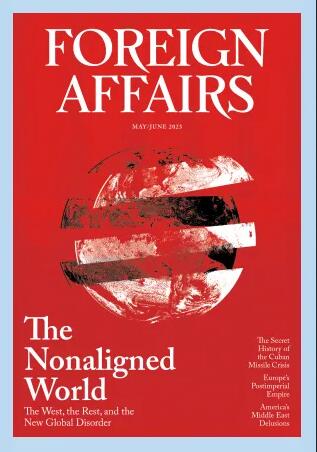Transcarpathia in Ukrainian-Hungarian Relations 1991-2022
IF 6.3
2区 社会学
Q1 INTERNATIONAL RELATIONS
引用次数: 0
Abstract
The relevance of the research lies in the fact that in the conditions of the modern stage, cooperation and relations between Ukraine and Hungary are tense. This is related to the pro-Russian position of Hungarian politicians, which arose after the appearance of the conflict in Donbas in 2014. Additionally, Hungarians defend their position regarding the level of protection and support of their minorities on the territory of Ukraine. It is reasonable to believe that Hungary is blocking Ukraine's path to European integration through open conflicts. The purpose of the article is the study of Ukrainian-Hungarian relations in the period 1991-2022, as well as the resolution of the conflict regarding Transcarpathia to stabilize relations between the countries. The methods used in the work include the historical method, based on which the dynamics of the development of relations between countries were studied; the statistical method, which consists in studying the demography of Transcarpathia; a comparative method based on which the consequences of the influence of relations on Ukraine's integration into Europe were considered. The results of the study determined that the improvement of relations between the countries can take place through the provision of simplified conditions for obtaining Hungarian citizenship for Hungarians from other countries, as well as the promotion of the development of cross-border infrastructure in Transcarpathia to provide new opportunities for the population, which will be an impetus for development in the political and cultural aspect, as well as the termination of cooperation between Ukraine and Hungary. The found ways of resolving conflicts between the countries will be an incentive for the development of both states: Ukraine will be able to continue its integration into Europe and establish favorable conditions for cooperation with Hungary; Hungary will be able to improve its relations with neighboring countries and stabilize the political aspect of these relations. The practical value of the research lies in the use of scientific material and its results to create a unified strategy for the establishment of Ukrainian-Hungarian relations, as well as the continuation of the integration movement of Ukraine into Europe1991-2022年乌克兰与匈牙利关系中的喀尔巴阡山脉
该研究的相关性在于,在现代阶段的条件下,乌克兰和匈牙利之间的合作和关系是紧张的。这与2014年顿巴斯冲突爆发后匈牙利政客的亲俄立场有关。此外,匈牙利人捍卫他们在乌克兰领土上对其少数民族的保护和支持程度的立场。我们有理由相信,匈牙利正在通过公开冲突阻碍乌克兰通往欧洲一体化的道路。本文的目的是研究1991-2022年期间乌克兰与匈牙利的关系,以及解决关于喀尔巴阡山脉的冲突,以稳定两国之间的关系。工作中使用的方法包括历史方法,在此基础上研究了国家间关系发展的动态;统计方法,即研究喀尔巴阡山脉外的人口统计学;一种比较方法,在此基础上考虑了关系对乌克兰融入欧洲的影响的后果。研究的结果确定,改善两国之间的关系可以通过为来自其他国家的匈牙利人获得匈牙利国籍提供简化的条件,以及促进喀尔巴阡山脉外的跨界基础设施的发展,为人民提供新的机会,这将推动政治和文化方面的发展。以及终止乌克兰和匈牙利之间的合作。已找到的解决两国之间冲突的方法将激励两国的发展:乌克兰将能够继续融入欧洲,并为与匈牙利的合作创造有利条件;匈牙利将能够改善其与邻国的关系,并稳定这些关系的政治方面。该研究的实用价值在于利用科学材料及其结果为建立乌克兰-匈牙利关系以及继续乌克兰融入欧洲的运动制定统一的战略
本文章由计算机程序翻译,如有差异,请以英文原文为准。
求助全文
约1分钟内获得全文
求助全文
来源期刊

Foreign Affairs
INTERNATIONAL RELATIONS-
CiteScore
4.80
自引率
0.00%
发文量
2
期刊介绍:
Founded in 1922, Foreign Affairs is a prominent American magazine that focuses on international relations and U.S. foreign policy. It is published by the Council on Foreign Relations, an esteemed nonpartisan think tank and membership organization dedicated to analyzing U.S. foreign policy and global affairs. While the print magazine is released every two months, the website offers daily articles and publishes anthologies every other month.
 求助内容:
求助内容: 应助结果提醒方式:
应助结果提醒方式:


